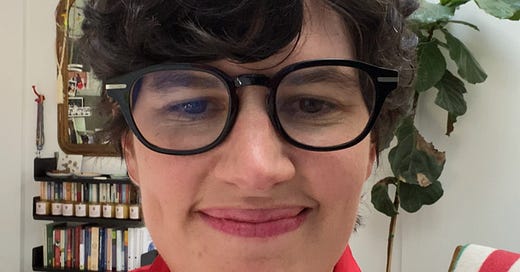TRANSCRIPT:
Parents: I think this is one of the most important books about the act of parenting written. Gordon Neufeld, with Gabor Maté, who insisted that Gordon’s work reach a wider audience—and so co-wrote the book with him to make it happen. ANd in the book, essentially, Neufeld posits that the reason that children are struggling today, isn’t that children are meaner, or that there is inherently more bullying, is because our children have become peer-attached, rather than adult-attached. And he writes: “Children, like the young of any warm-blooded species, have an innate orienting instinct: they need to get their sense of direction from somebody…Children cannot endure the lack of such a figure in their lives: they become disoriented.” And they will find that, and they will find that absent parents, or insisting on that being parents, coaches, teachers…they will take it from their peers. And as he writes: “Absolutely missing in peer relationships are unconditional love and acceptance, the desire to nurture, the ability to extend oneself for the sake of the other, the willingness to sacrifice for the growth and development of the other.” And so the book is effectively is about how to ensure that your children stay adult-attached—it doesn’t mean that they won’t have tons of friends—but that that primary pole is an adult is an adult who can look after their well-being. Such a powerful read.
CAPTION:
There are parenting books for every type of parent—it's a real choose-your-own-adventure out there. BUT, if you've been struggling to understand why kids are more anxious and depressed these days, Hold On To Your Kids is a fascinating read (the reason is not that kids have become meaner or increasingly inclined to bully). Drs. Gordon Neufeld and Gabor Maté argue that we are struggling because kids have become peer, rather than adult attached—and they can only choose one true North for their compasses. As they write, "Absolutely missing in peer relationships are unconditional love and acceptance, the desire to nurture, the ability to extend oneself for the sake of the other, the willingness to sacrifice for the growth and development of the other." They are KIDS after all. They elaborate: “Far from being qualified to orient anyone else, children are not even capable of self-orienting in any realistic sense of that word. Our children’s peers are not the ones we want them to depend on. They are not the ones to give our children a sense of themselves, to point out right from wrong, to distinguish fact from fantasy, to identify what works and what doesn’t, and to direct them as to where to go and how to get there." I think this is an essential read for all parents—as an antidote, it requires that we continue to intervene to ensure our kids orient to us (and other adults, like teachers, coaches family friends). This doesn't mean that they won't have healthy friendships, just that peers cannot become the most important anchoring force in their lives.
5 KEY TEACHINGS:
1. Children need to orient to a “North Pole”—and when this is ceded to other children, disaster can result. I mentioned this above, but they elaborate on it more below.
Per Neufeld & Maté:
Children, like the young of any warm-blooded species, have an innate orienting instinct: they need to get their sense of direction from somebody. Just as a magnet turns automatically toward the North Pole, so children have an inborn need to find their bearings by turning toward a source of authority, contact, and warmth. Children cannot endure the lack of such a figure in their lives: they become disoriented. They cannot endure what I call an orientation void.
…
Likewise, if no parenting adult is available, the human child will orient to whomever is have displaced the parent from his intended position as the orienting influence on the child. The peer group has moved into this orienting void, with deplorable results.
…
Children cannot be oriented to both adults and other children simultaneously. One cannot follow two sets of conflicting directions at the same time. (p. 8)
2. When children become disobedient, distant, etc.—this doesn’t suggest that you’re having a discipline or behavior problem, it suggests that there is an issue in the relationship or connection.
Watch with a 7-day free trial
Subscribe to Pulling the Thread with Elise Loehnen to watch this video and get 7 days of free access to the full post archives.





